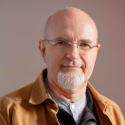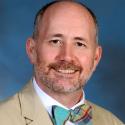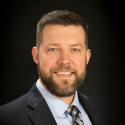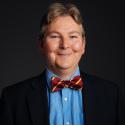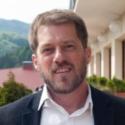2025 Theologians Network
- Image

Many evangelical theologians teach in universities, seminaries, and colleges with little opportunity for dialogue, fellowship, and encouragement from their evangelical brothers and sisters. The Theologians Network has been designed to provide this context and to make available an opportunity to interact with some of the world's leading evangelical scholars.
What Network Participants Are Saying
- "I am a member of the Theologians Network where we hear the lectures of world-renowned scholars, like John Dickson, Darrell Bock, Peter J. Williams, and Dirk Jongkind. Their insights can both strengthen my teaching work among future pastors and strengthen my apologetic skills among the frequently theologically 'liberal' (or at least inclined to liberal theology) colleagues."
- Andras Pataki, Pastor, Hungary - "Being part of the Theologians Network, I have access to outstanding Evangelical theologians, valuable talks, promising contacts, and experienced Christian leaders. ELF is an important place for me to learn how I can combine active service in my local church with a theological academic career in a healthy and God-loving way. This year’s participation in ELF was especially beneficial for me, as we are now doing something incredibly difficult in our church. I drew strength at ELF to meet those challenges through the uplifting power of the Spirit and with the support of my brothers and sisters."
- Konrad Buzala, Vicar, Poland - "Participating in the ELF has been an invaluable experience for me on multiple levels. First and foremost, it has provided me with great opportunities for getting networked, being equipped, and receiving valuable resources for mission and evangelism. The diverse range of speakers and workshops at ELF enabled me to gain new insights, broaden my perspectives, and deepen my understanding of leadership and discipleship principles. Moreover, the Forum has served as a catalyst for spiritual growth and renewal in my life. The worship sessions, prayer times, and fellowship with fellow Christian leaders rejuvenated my spirit and reaffirmed my calling."
- Paul Hyung-Keun, General Secretary of Korea Lausanne Committee, South Korea
Applicants should be involved in full-time theological education (such as teachers, professors, and theology students).
Network Leadership
Network Speakers
Leonardo De Chirico is the pastor of Breccia di Roma, a church that he helped plant in Rome in 2009, and Chair of the Theological Commission of the Italian Evangelical Alliance. Previously, Leonardo planted and pastored an evangelical church in Ferrara, Italy from 1997 to 2009. He earned degrees… Read more
Bradley G. Green teaches theology at Union University in Jackson, Tennessee. He earned an M.Div. at The Southern Baptist Theological Seminary, a Th.M. at Southwestern Baptist Theological Seminary, and a Ph.D. at Baylor University. He is the author of several books: "Colin Gunton and… Read more
Caleb Howard is a Research Fellow in Old Testament and Ancient Near East at Tyndale House and editor of the Tyndale Bulletin. He studies the texts, history, and scholarship of ancient Mesopotamia and the Levant. His current book project investigates the mechanics of scribal… Read more
Steffen G. Jenkins is half German, half Welsh, was born in Spain but again in England. He serves as Senior Lecturer in Greek and Biblical Studies at Union School of Theology in the United Kingdom. He has served at various seminaries in Cuba, as tutor in Biblical Languages at Tyndale House (… Read more
Dirk Jongkind is the Academic Vice Principal of Tyndale House, Cambridge, and an Affiliated Lecturer at Cambridge University. His main scholarly interest is the text and language of the Greek New Testament. He is also the editor of the Tyndale House Greek New Testament… Read more
Petra Ratkovics is a PhD candidate in biblical theology from Budapest, Hungary. She is passionate about theological education, as well as teaching about the Bible to anyone who’s interested in it. She’s currently developing an online ministry of posting videos about academic topics regarding the… Read more
Ádám Szabados is a Hungarian theologian and the leader of the Hungarian Evangelical Forum. Until 2017 he had been a pastor for 20 years. He is married to Dóra and has two adult sons. He studied English literature and linguistics at the University of Veszprém (MA equivalent, with honours), and… Read more
Network Programme
Sunday, 18 May
The Fourth Lausanne Congress (Seoul, 2024) marked the 50th anniversary of the 1974 Lausanne Congress on World Evangelization, but it was also the opportunity to assess how present-day evangelicalism that the Global South largely influences understands its mission to the world. The theme of the congress was “Let the church declare and display Christ together” and well-summarized the focus of the congress. As a European theologian, I participated in the congress. This presentation will offer some reflections based on that experience. They will open a window to the theological trends, influences, and directions that are at work in global evangelicalism.
Genesis 14 gives us more information about its socio-political context than just about any other part of the patriarchal narratives. A classic study by Thomas Thompson in the 1970s cast doubt on the historical authenticity of this part of Genesis, and his arguments continue to be influential in Old Testament studies. The past fifty years have seen significant gains in understanding the historical facets of Abraham’s world, some of which are relevant for Genesis 14. This presentation will review some of these and argue for the historical authenticity of the account.
Monday, 19 May
N.T. Wright is a challenging theologian for evangelicals. He defends truths that are important to us, like the resurrection of Jesus and the importance of salvation history. But he advocates for an alternative understanding of the doctrine of justification by faith, which is known as the New Perspective on Paul. In this session, we will unpack N.T. Wright’s teaching of the New Perspective on Paul.
Why does so much scholarship on the letters of Paul fail to convince or inspire? One of the reasons is that scholars fail to read the letters against the background of the preaching of the Gospel as we find it written down in the four Gospels. In this session, we will analyse the problem and demonstrate how central the Jesus of the Gospels is to a proper understanding of Paul.
Tuesday, 20 May
N.T. Wright has been a key voice advancing the New Perspective, which challenges traditional interpretations of Paul's writings, particularly regarding his understanding of justification and the law. What should we make of this new understanding of Paul? In this session, we will attempt to give a fair theological critique of N.T. Wright’s theological architecture.
The Old and New Testaments are more deeply interconnected than most believers would think. In this talk, we will examine how, looking beyond direct quotations, Jeremiah had an effect on Paul’s way of thinking. Our journey will take us through three main themes: 1) prophetic/apostolic call, 2) the nature of the new covenant, and finally 3) the presence of the Lord within the redeemed community.
Wednesday, 21 May
Critical Theory is a philosophy, or school of philosophy which goes back to the early decades of the 20th century. The Critical Theorists were frustrated that by the 1920s the hoped-for revolution had not materialized. This talk suggests that Critical Theory is a kind of alternative religion–complete with its own view of creation or metaphysics, its own understanding of sin, and its own understanding of redemption and eschatology. Indeed, Critical Theory is best understood as a vision of the world which is parasitic on Christianity. The Christian faith provides the better understanding of God, man, and the world–an understanding that Critical Theory cannot produce from its own commitments and insights.
Passages in the Law which point to Christ, especially sacrifices, are often treated as mere illustrations of what we already know from the NT. Conversely, some authors attack an evangelical view of the cross as being unjust and unscriptural. In this session, we will let the Law teach us about the cross: shining greater light on NT passages by showing us what the NT authors assumed but we often miss. We will also look at passages that may seem less obvious predictions of the cross, but which train our morals to see how God’s solution to the sin of the world in the penal, substitutionary, atoning death of Christ was also the most glorious demonstration of justice.

